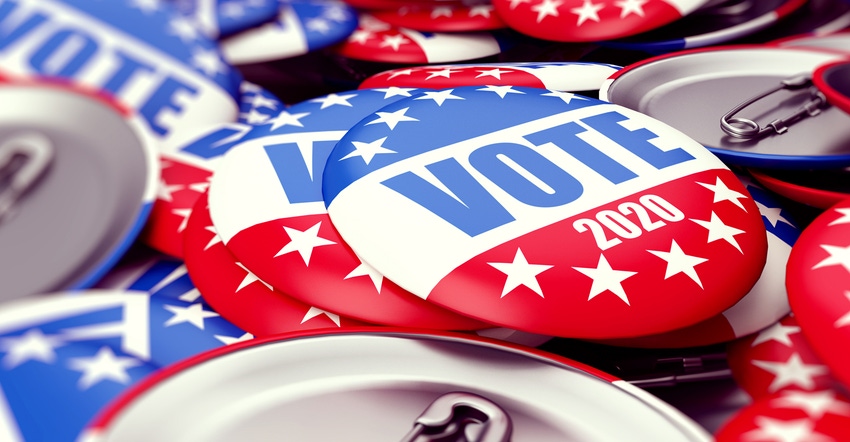September 28, 2020

While the two major national political parties disagree on almost everything, there is one thing they both believe: This may be the most important election in a lifetime.
If this election is crucial, it’s critical that you vote. Even if you’ve never voted, this is the time to make your voice heard. If one person thinks it doesn’t matter and stays home, maybe it won’t swing the national outcomes. But if thousands think “my vote doesn’t matter” and stay home, that could determine the country’s future direction.
Find facts
My bias is to stay out of political issues. However, too much is at stake not to encourage you to vote and to identify areas within agriculture that could pivot based on this election.
I’ve heard from several of you on all sides. I know there are strong convictions going both directions. Some of those convictions are based on personalities. Others are based on which policies would be best for agriculture in Indiana and across the country.
Go deeper than the attack ads. One commercial airing in September for a congressional candidate in northern Iowa attacked the opponent by literally showing fat sows eating out of troughs in a muddy lot. We can do better. Search for the facts. Make up your own mind and vote.
Here are just some of the issues that touch agriculture:
Taxation policies and economic recovery. The platforms of the two major parties could not be more different. One side believes increasing taxes is the way to go. The other side says it will only bring a deeper recession.
Capital gains and real estate taxes. While some Hoosier landowners don’t believe we’ve seen enough relief in taxation on ag land, examine policies of each side. Holly Spangler, editor of Prairie Farmer, our sister publication in Illinois, discovered that the platform of one party calls for a return to policies that would mean higher taxes once again before real estate is passed on to heirs. Make sure you understand what both sides propose.
Environmental regulations. Policies that would have allowed government agencies to take a closer look at whether wetter areas of farms are wetlands were reversed over the past four years. What does each party say about this issue now? Will the tendency to tighten or loosen government regulations in other areas, such as fertilizer application, be impacted by the election?
Climate change. Many of you don’t think climate change is real; many of you do. Of those who do, many aren’t sure what’s causing it. The only certainty is that if you have an opinion, it’s a strong one. It’s no different among the two leading political parties. Their platforms are very different when it comes to climate change and how to address it.
Trade and tariffs. Here’s another hot button that can’t be left out. What we hear most often is that government payments have helped keep farms afloat, but no one likes farming for the government. That’s understandable. Unfortunately, government programs and payments have been a part of agriculture more times than not going back to the 1960s, no matter who was in power.
Add your own important issues. Weigh the pros and cons. Whatever you do, vote! Don’t wake up Nov. 4 thinking, “Maybe I should have voted.”
Comments? Email [email protected].
You May Also Like




